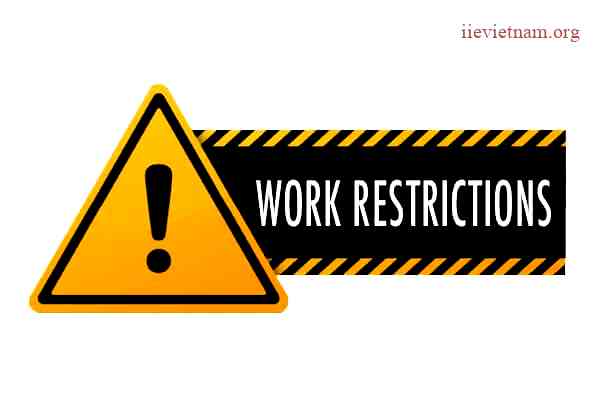What Happens if My Employer Cannot Accommodate Work Restrictions? Know Your Rights

So, you’ve been injured or sick, and your doctor has put you on work restrictions to help you recover. But what happens if your employer cannot accommodate those restrictions? Don’t worry, fam, we’ve got you covered. In this article, we’ll break down what you need to know and what you can do if your employer can’t accommodate your work restrictions.
Understanding Work Restrictions
Work restrictions, also known as "work mods" or "modified duty," are limitations on your work activities that your doctor has put in place to help you recover from an injury or illness. These restrictions might include things like no heavy lifting, no driving, or no standing for long periods of time. Your employer is usually required to accommodate these restrictions if they’re reasonable and don’t cause too much hardship for the company.
What Happens if My Employer Cannot Accommodate Work Restrictions?
If your employer can’t accommodate your work restrictions, it’s not necessarily the end of the world. There are a few things that might happen, depending on the laws in your state and the specific situation.
Leave of Absence
One possibility is that your employer might offer you a leave of absence. This means you’d take time off work to recover from your injury or illness, and you might be eligible for temporary disability benefits or workers’ comp benefits. This can be a good option if you need to focus on your recovery and can’t do your job with the work restrictions in place.
Alternative Job Duties
Another possibility is that your employer might try to find alternative job duties that you can do within the work restrictions. For example, if you’re a construction worker who can’t lift heavy objects, your employer might find desk work for you to do instead. This way, you can still do some work and earn a paycheck while you’re recovering.
Interim Measures
In some cases, your employer might be able to offer interim measures to help you do your job with the work restrictions in place. For example, they might provide ergonomic equipment or modify your workspace to reduce strain on your body.
Termination
Unfortunately, if your employer can’t accommodate your work restrictions, they might terminate your employment. This is more likely to happen if you’re not able to do your job at all, even with the work restrictions in place. However, before terminating you, your employer is usually required to explore other options, such as the ones mentioned above.
What Are Your Rights?
So, what are your rights if your employer can’t accommodate your work restrictions? Here are a few things to keep in mind:
ADA Protections
If you’re an employee with a disability, you might be protected under the Americans with Disabilities Act (ADA). The ADA requires employers to provide reasonable accommodations for employees with disabilities, including work restrictions. This means that your employer can’t just terminate you if they can’t accommodate your work restrictions – they have to explore other options first.
Workers’ Comp Protections
If you’re an injured worker, you might be eligible for workers’ compensation benefits. These benefits can help you pay for medical expenses and lost wages while you’re recovering from your injury. If your employer can’t accommodate your work restrictions, you might be able to file a workers’ comp claim to get benefits while you’re off work.
Family Medical Leave Act (FMLA) Protections
If you’re an employee who needs time off work to recover from an injury or illness, you might be eligible for leaves under the Family Medical Leave Act (FMLA). FMLA provides eligible employees with up to 12 weeks of unpaid leave per year for serious health conditions, including work injuries. If your employer can’t accommodate your work restrictions, you might be able to take FMLA leave to focus on your recovery.
What to Do if Your Employer Can’t Accommodate Your Work Restrictions
So, what happens if your employer can’t accommodate your work restrictions? Here are a few steps you can take:
- Talk to Your Employer: Start by talking to your employer about your work restrictions and see if there are any alternative job duties or interim measures they can offer.
- File a Workers’ Comp Claim: If you’re an injured worker, file a workers’ comp claim to get benefits while you’re off work.
- Apply for FMLA Leave: If you’re eligible, apply for FMLA leave to focus on your recovery.
- Seek ADA Accommodations: If you’re an employee with a disability, seek ADA accommodations to help you do your job with your work restrictions in place.
- Consult an Attorney: If you’re not sure about your rights or options, consult an attorney who specializes in employment law or workers’ compensation law.
Conclusion
What happens if my employer cannot accommodate work restrictions? Well, it’s not the end of the world. There are options and rights available to you, depending on the laws in your state and the specific situation. By understanding your rights and taking the right steps, you can protect yourself and focus on your recovery.
What Happens if My Employer Cannot Accommodate Work Restrictions? Don’t panic – know your rights and take action to protect yourself.